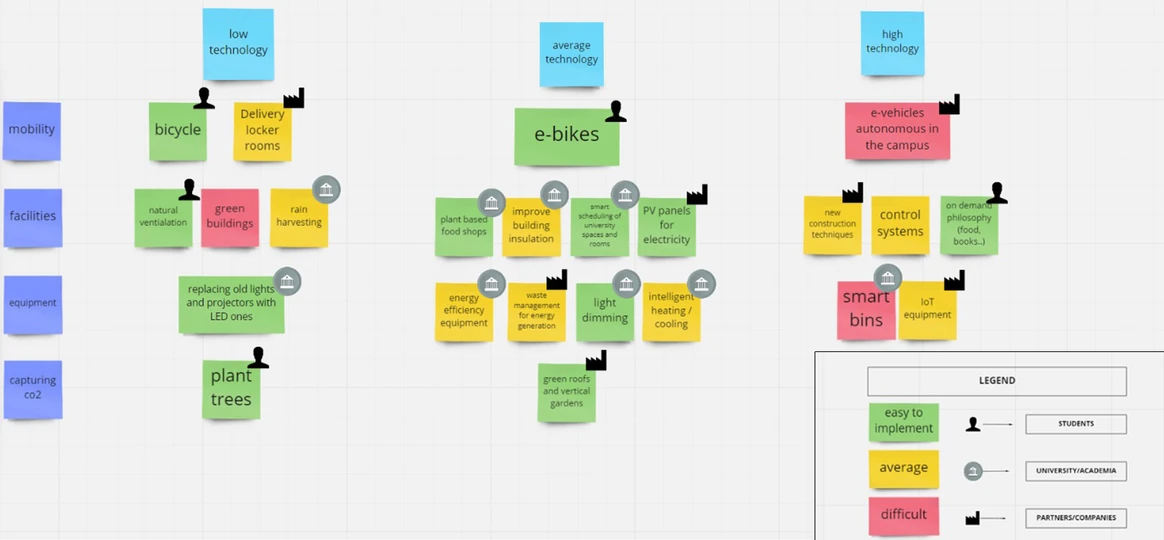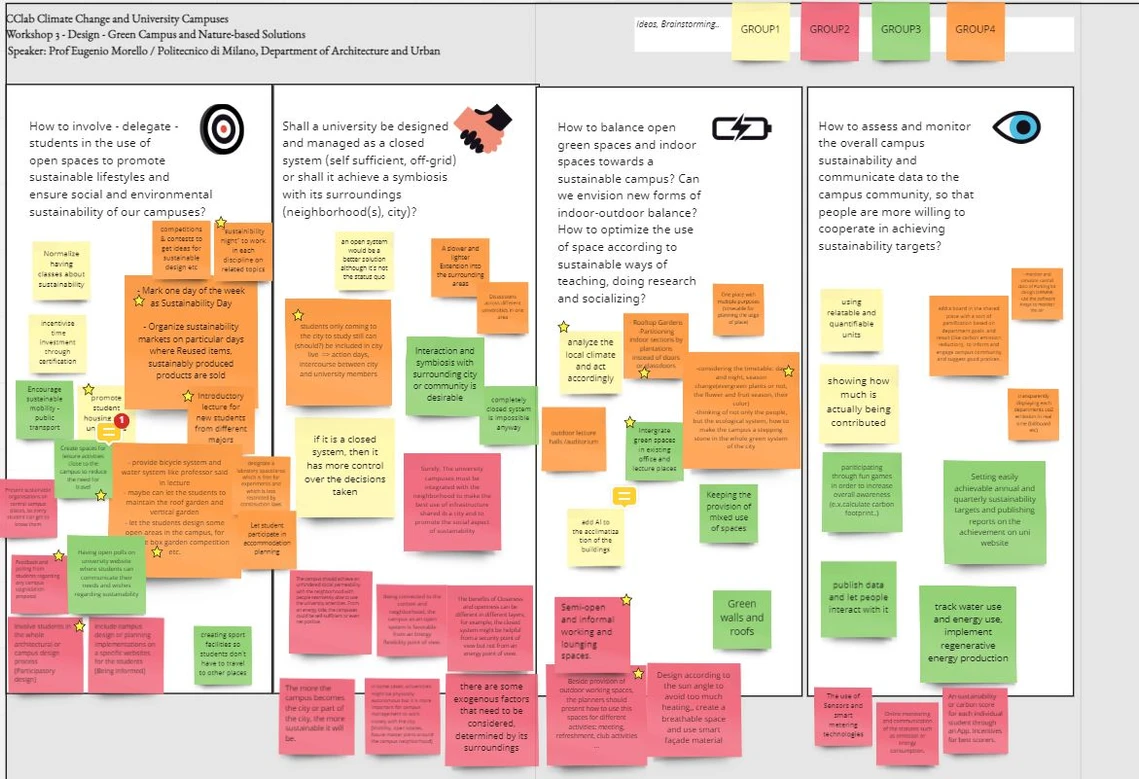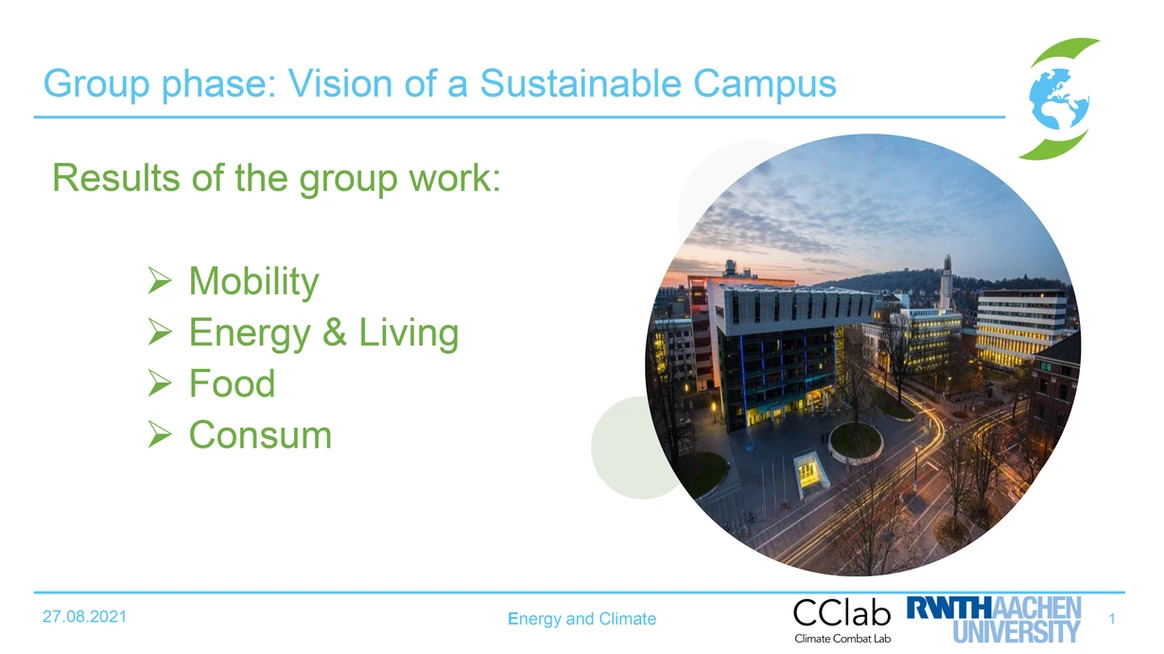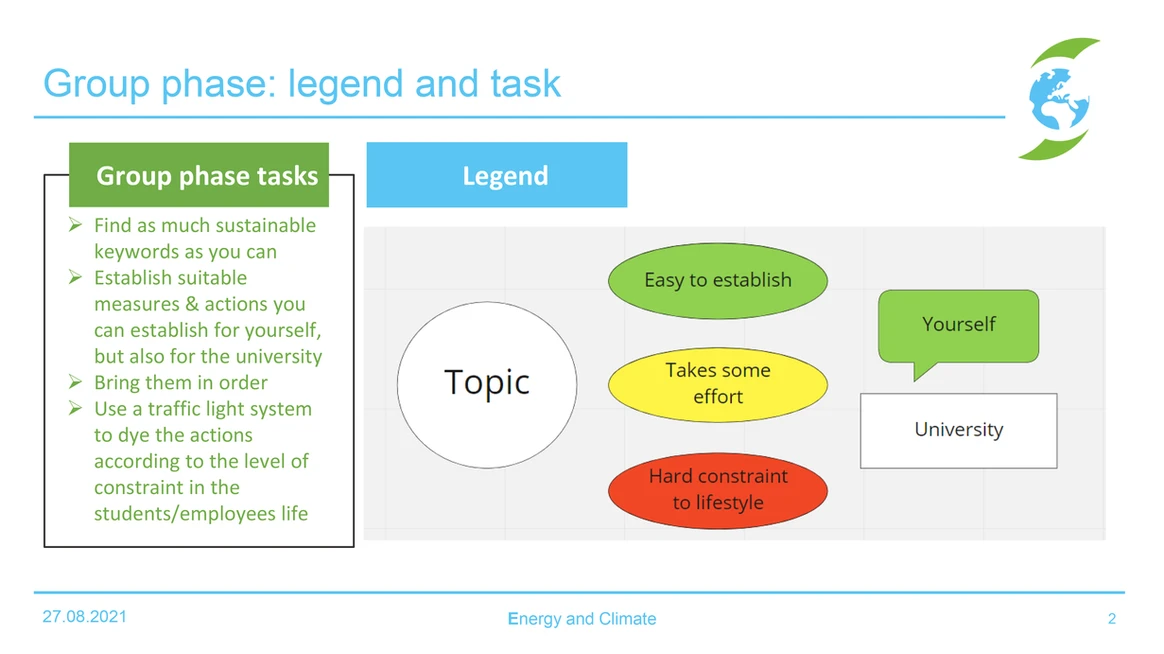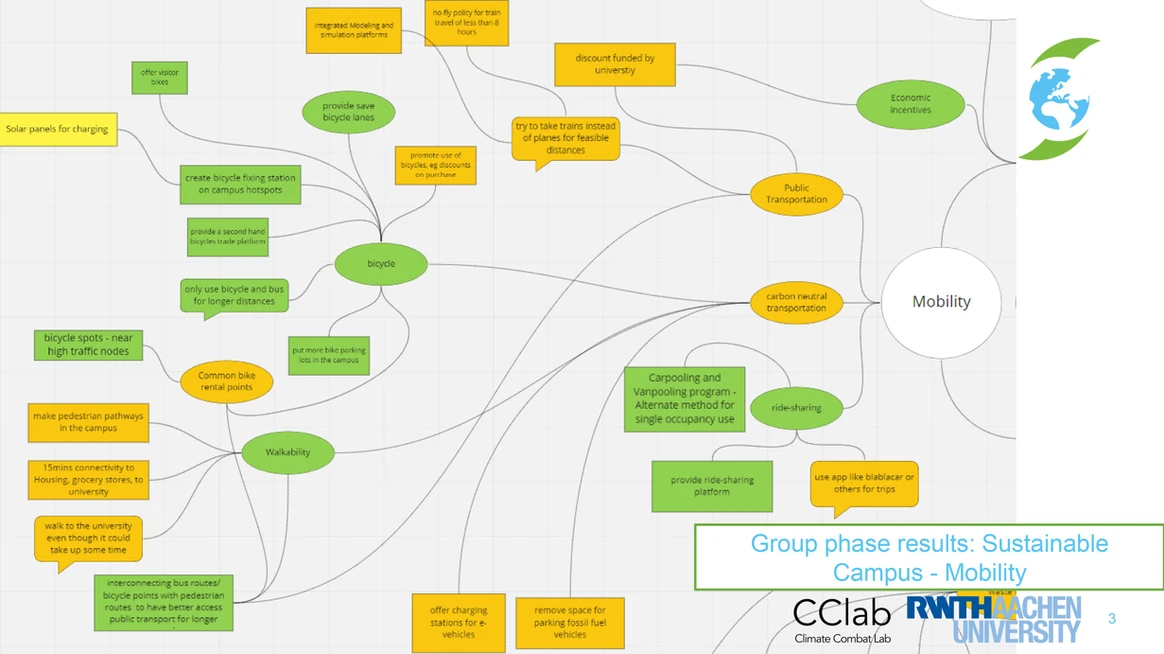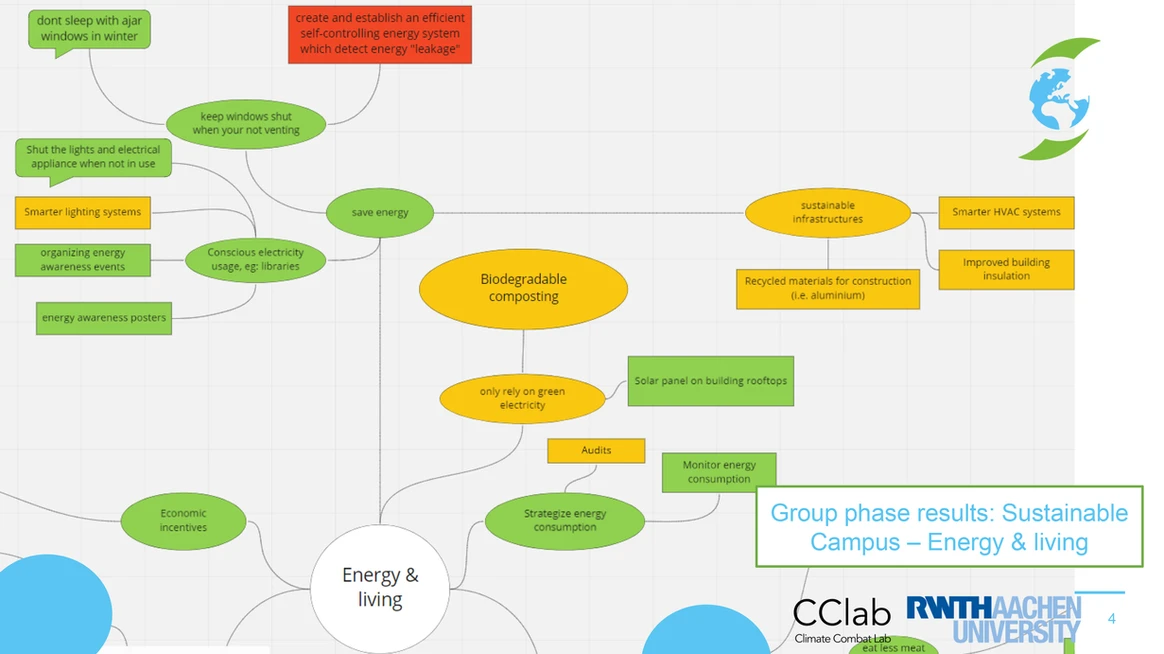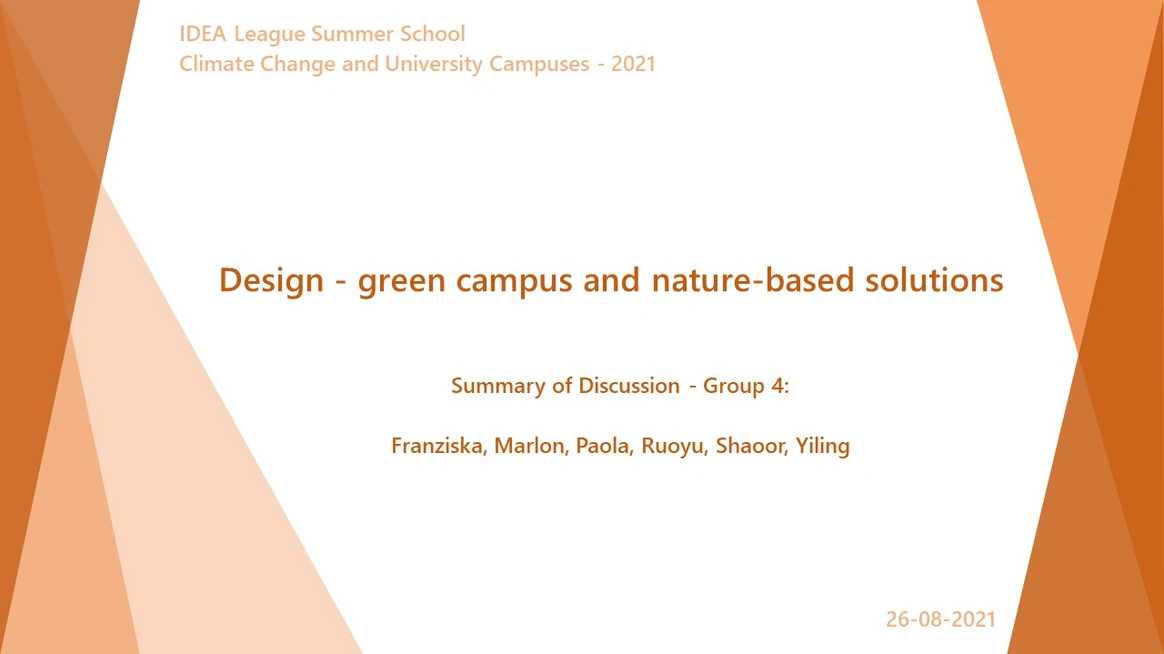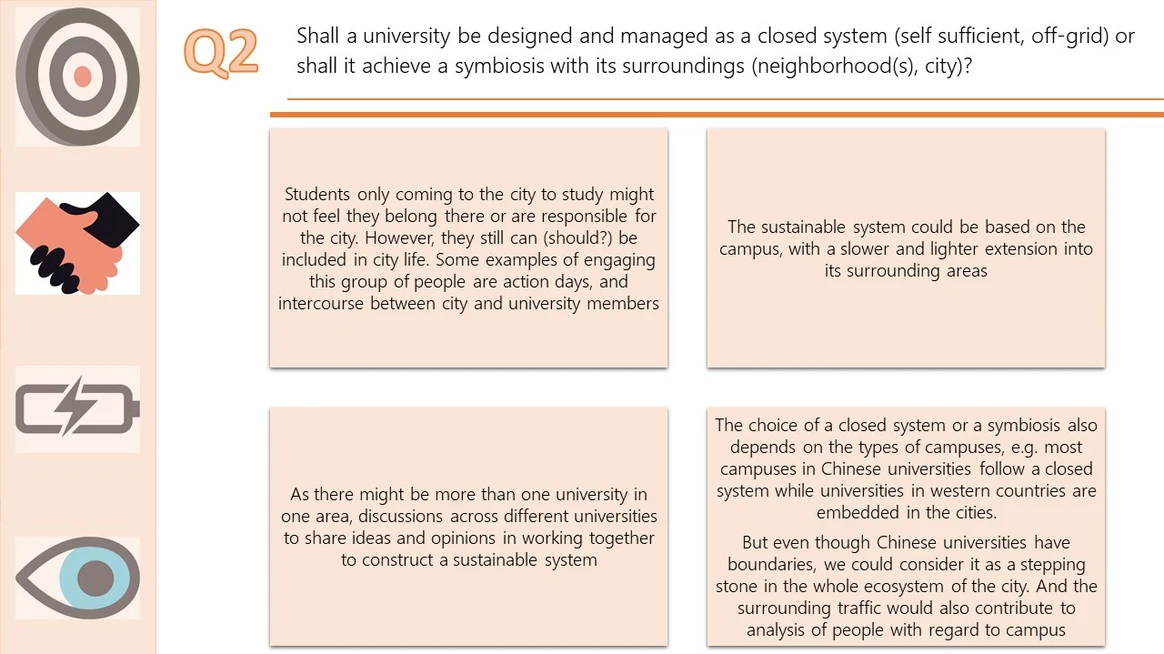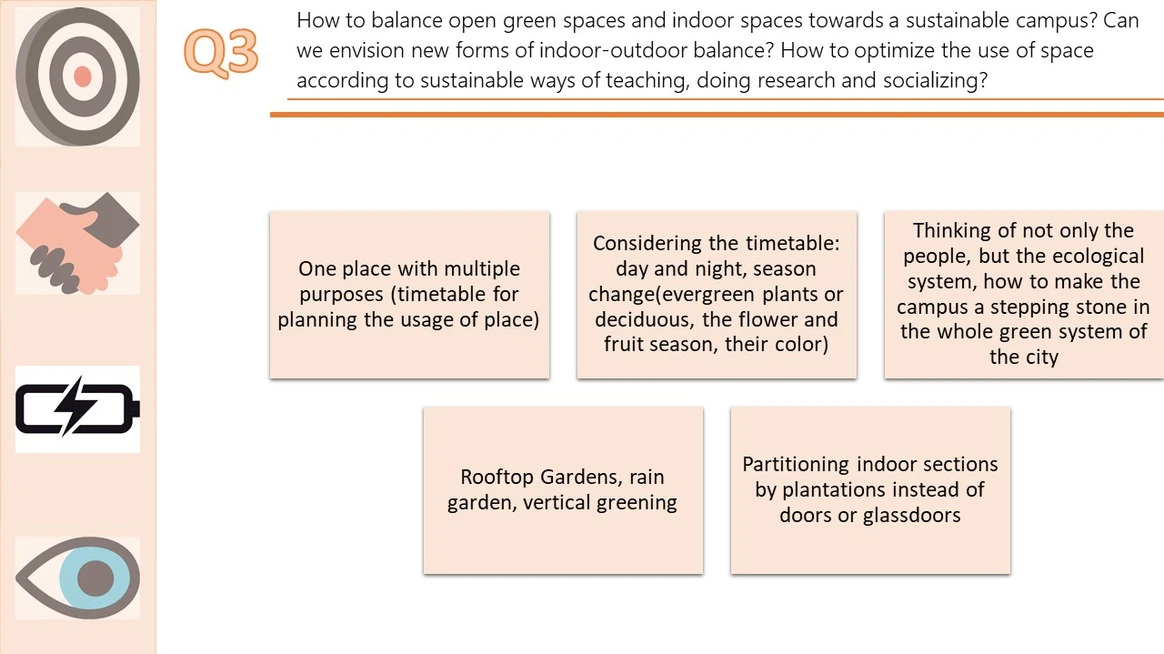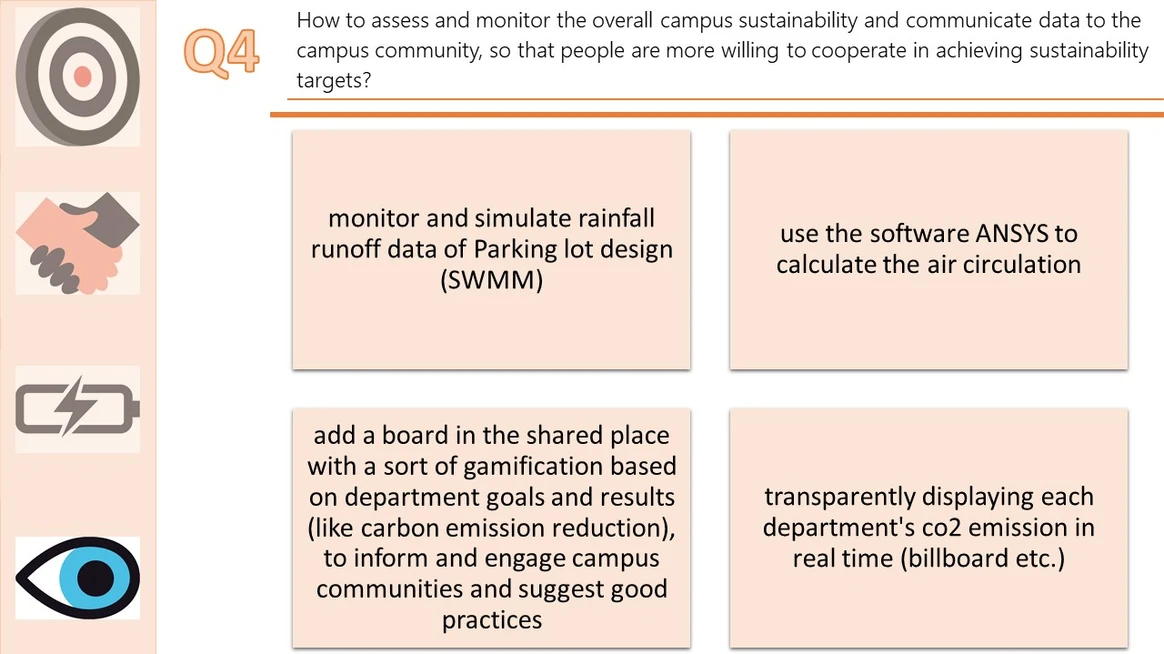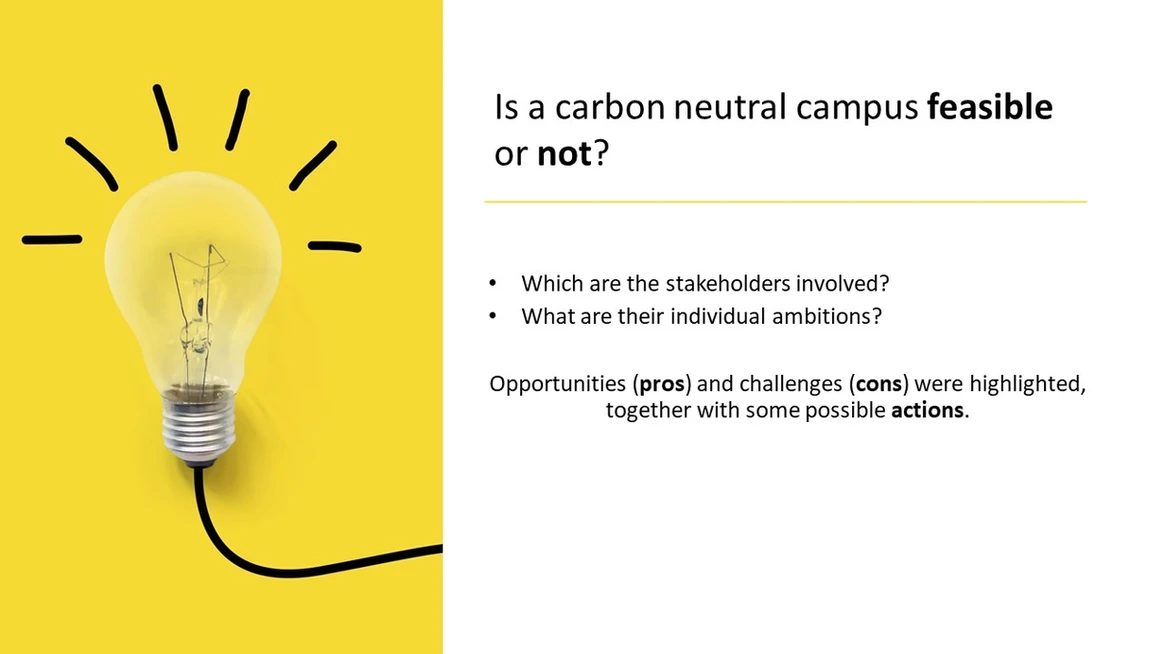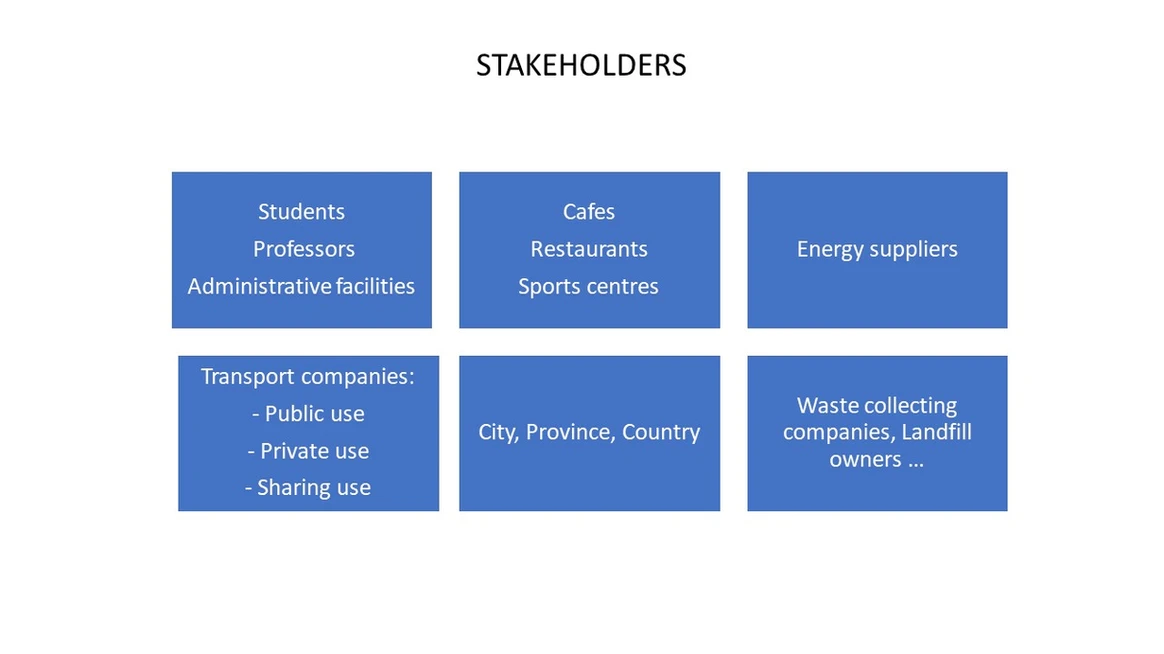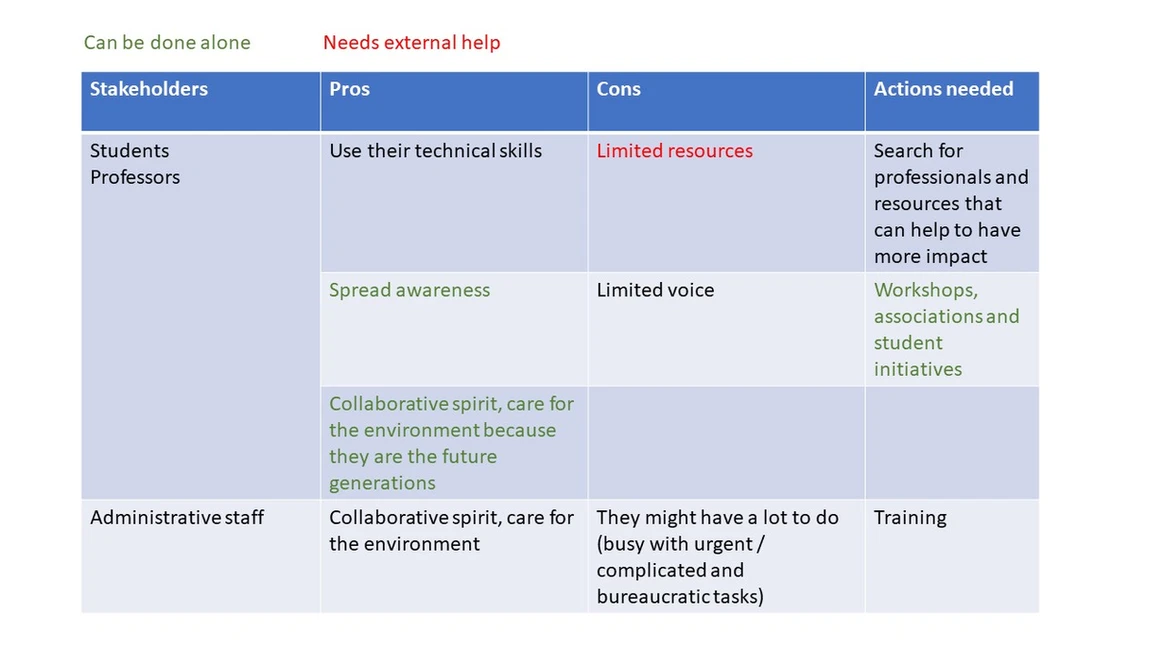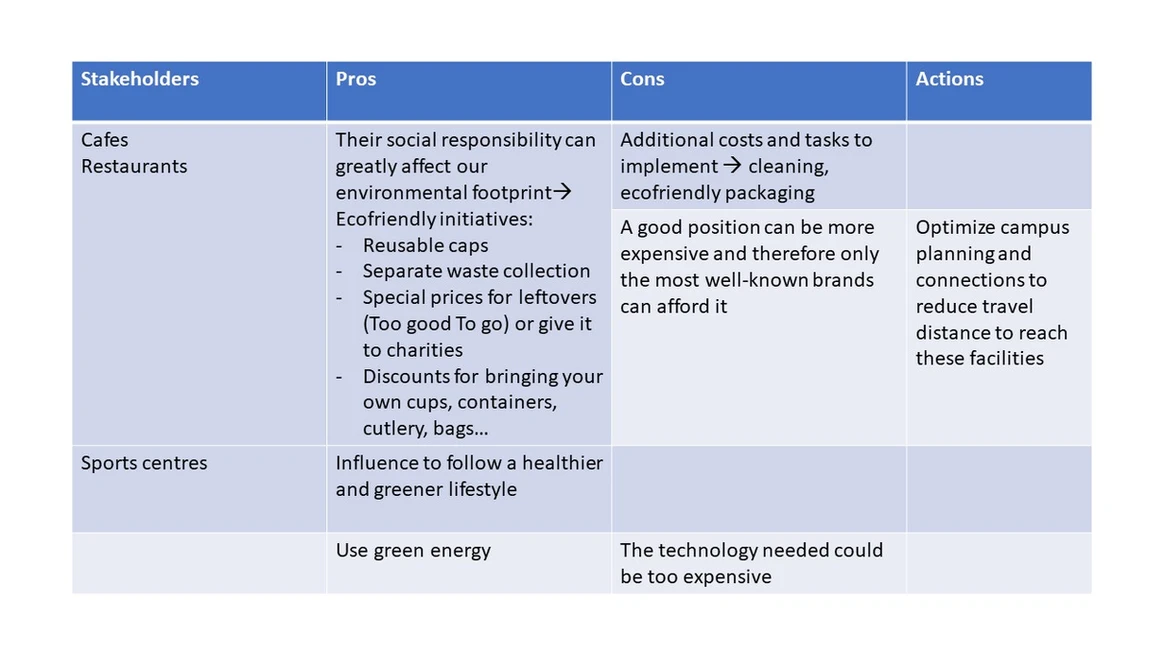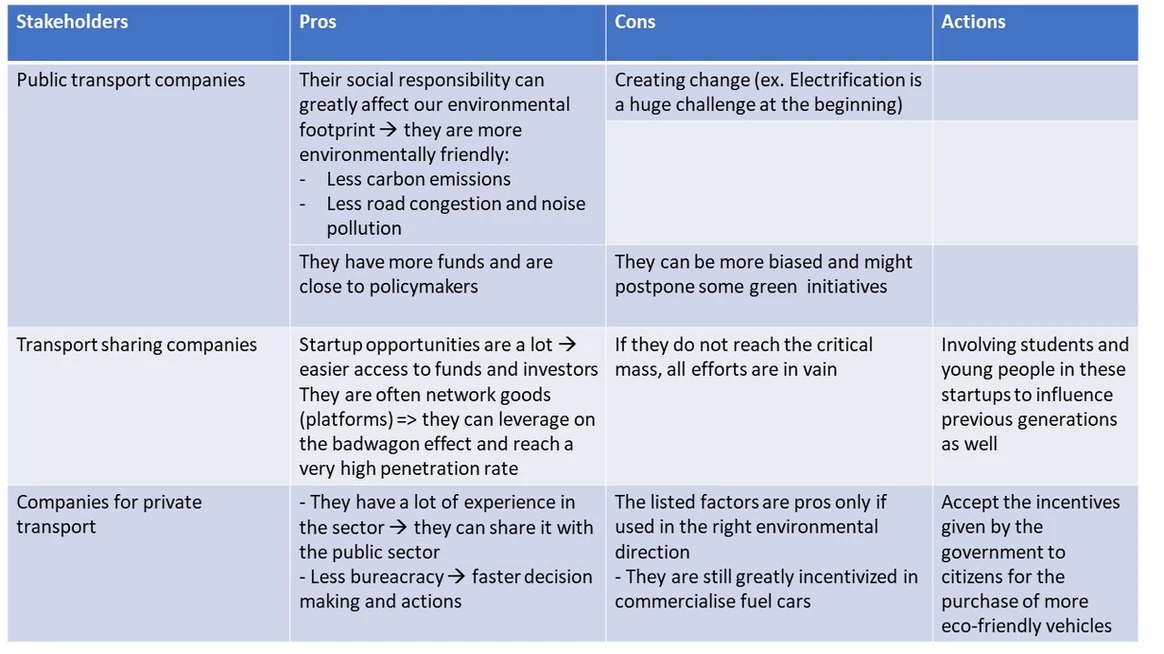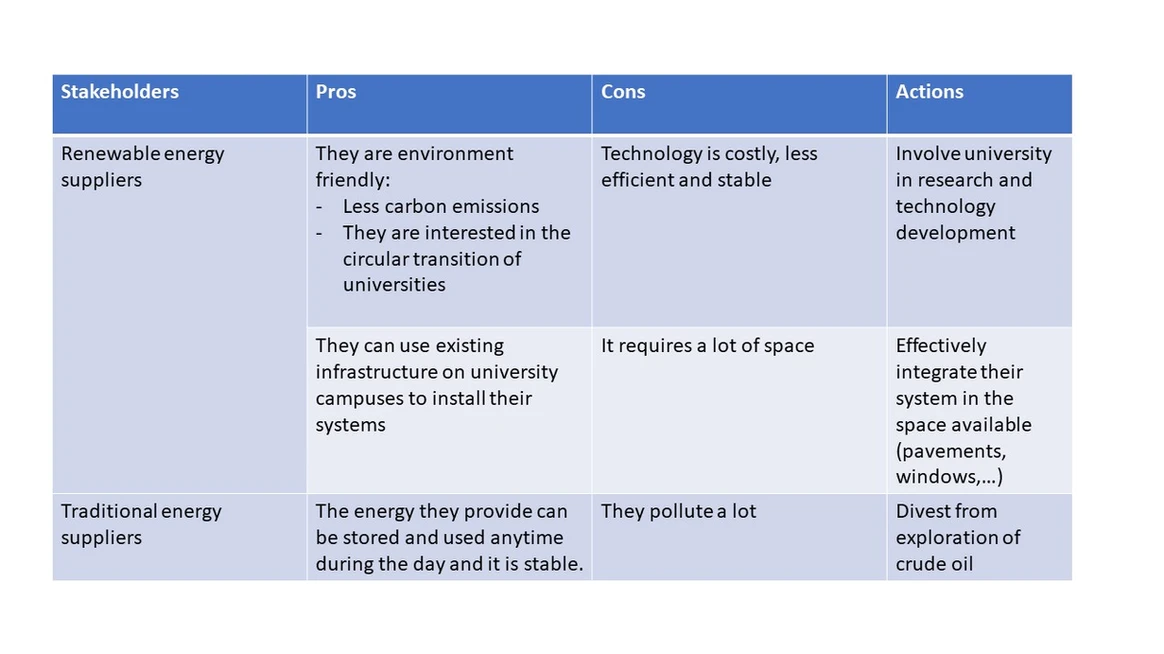IDEA League Summer School 2021
Climate Change and University Campuses
25-27 August 2021
The IDEA League Summer School 2021 took place under the title “Climate Change and University Campuses” – as an online event due to the coronavirus pandemic. Over three days and in five workshops, the participants discussed and exchanged new ideas and strategies for climate protection on campus. The workshops focused on the topics of governance, energy, green campus and nature-based solutions, circularity, and education. RWTH contributed from a wide range of research disciplines. Student initiatives from Aachen were also actively involved. Energybirds e. V. and Uni.Urban.Mobil. were also there. A total of 48 master’s and doctoral students took part in the Summer School.
University campuses potentially may have a high impact on climate change mitigation, as they accommodate various high educated and skilled communities, who are well organised through students’ organisations, research and administrative bodies, and workers’ unions, among others. There is an increasing number of attempts to develop university-wide strategic plans and actions to combat climate change. Yet, a limited number of initiatives have been taken to mobilise university communities as active agents to mitigate climate change. This summer school facilitates an online interactive platform, the Climate Combat Lab (CCLab), which brings together students and academics to exchange and develop ideas on developing, testing and disseminating climate change mitigation strategies and action plans for university campuses.
The programme aims to:
- Develop a climate change mitigation strategy operationalising a new participatory model for inclusive strategies and actions plans.
- Identify the drivers of climate change on the university campuses
- Identify a range of effective practices addressing climate change mitigation
Format
Due to the worldwide restrictions concerning Covid-19, this summer school is organized in an online format.
Expenses
There are no registration, tuition, and accommodation fees. This Summer School is held digitally; there are no travel expenses.

Themes

The themes of the summer school are, in turn, to draw attention to climate change, to learn about the strategies implemented, to adapt these strategies to IDEA and ASPIRE university campuses, and to create new solutions through the exchange of students’ ideas. In the summer school organized for 3 days, and 5 workshops under each theme were designed. Maps, concept boards, and other materials produced at the end of each workshop can be shared via the digital platform and students can continue to discuss the topics in blog format.
Speakers
In alphabetical order
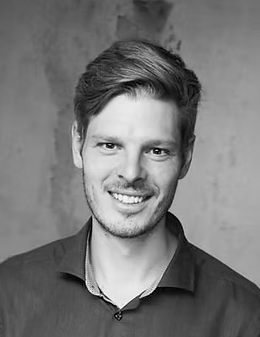

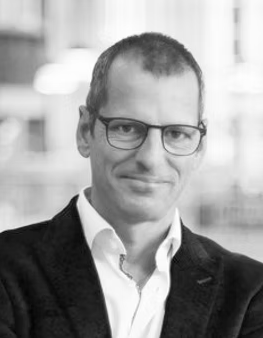
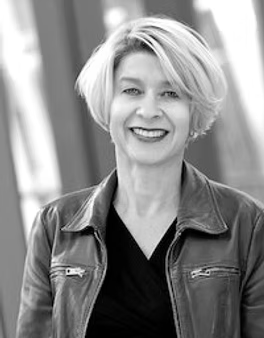
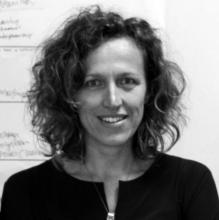

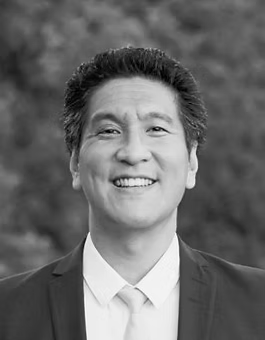


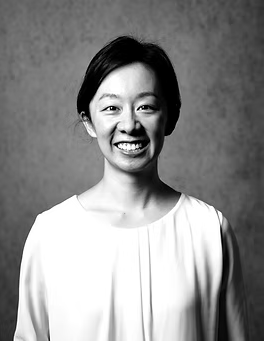
Prof. Niklas von der Aßen
Junior Professor
Sustainable Life Cycles in Energy, Chemical and Process Engineering
RWTH Aachen University
Prof. Davis Bookhart
Head of HKUST Sustainability / University Sustainability Coordinator
Adjunct Assistant Professor, Division of Environment and Sustainability
Hong Kong University of Science and Technology
Prof. Andy van den Dobbelsteen
Professor of Climate Design & Sustainability
Department of Architectural Engineering + Technology
TU Delft
Prof. Ute Habel
RWTH Vice-Rector for International Affairs
RWTH Aachen University
Ms. Naomi Hoogervorst
Senior urban planner
UN-Habitat / Urban Lab / Kenya
Prof. Eugenio Morello
Associate Professor in Urban Design
Department of Architecture and Urban Studies
Politecnico di Milano
Prof. Aaron Praktiknjo
Head of the Chair for Energy Systems Economics
RWTH Aachen University
Prof. Christa Reicher
Head of the Chair and Institute
Chair of Urban Design and Institute for Urban Design and European Urbanism
RWTH Aachen University
Dr. ir. Ceren Sezer
Research Associate, Speaker Research Cluster Campus Development
Chair of Urban Design and Institute for Urban Design and European Urbanism
RWTH Aachen University
Ms. Christina Tang
Director of Blue Sky Energy Technology.
Programme

Lecture Videos
Keynote Speech by Ms Naomi Hoogervorst
Keynote Speech by Prof Christa Reicher
Workshop I. Governance by Prof Andy van den Dobbelsteen
Workshop III. Design by Prof Eugenio Morello
Workshop IV. Circularity by Prof Niklas von den Aßen
Workshop V. Education by Prof Davis Bookhart
Outcomes
Interactive Boards
Workshop II. Energy
This interactive workshop on sustainable energy systems deals with the overarching question of how we can transform energy supply and energy demand to meet the emission targets for the energy sector. We will explore the flow of energy from its primary forms such as renewable, nuclear, or fossil energy over intermediate forms such as electricity to its ultimate use for heating, mobility, or other uses. We will look at sector coupling and how it will influence future energy demands and energy flows. Finally, we shed light on methods for analyzing the transformation of energy systems by playing a serious game that we developed at our chair.
Workshop III. Design
The spatial dimension of sustainability will be at the heart of the workshop. We will explore how the campus setting – that is, open spaces and buildings, infrastructure and furnishings – can offer the university community opportunities for better lifestyles and behaviors and support the path to adaptable and resilient campuses. In particular, the integration of green solutions and new technologies spread across the campus can increase both sustainability and resilience, especially as regeneration strategies applied to established university contexts. In addition to the physical layout of the campus, its location (for example, urban or not) plays an important role in the activation and deployment of exogenous resources to reduce their environmental impact and, even more, in providing ecosystem services to the urban environment, thus helping to improve overall urban sustainability.
Workshop IV. Circularity
The workshop ‘Circularity’ will elaborate the concept and feasibility of establishing a closed carbon cycle, i.e., to become climate neutral. After a lecture about the concept, technologies and status quo of CO2 emission reduction, CO2 recycling and negative CO2 emissions, the participants will discuss the opportunities and challenges from several perspectives: what technologies are available or needed, what are the social and ethical consequences of carbon recycling and negative CO2 emissions, and what are the involved stakeholders and their ambitions? The participants will reflect these questions in the context of their university campuses. We will wrap-up the workshop with a differentiated opinion on whether and how it is possible to achieve circularity and climate-neutrality at university campuses.
Organisers
Local Organisation
RWTH Aachen University Chair and Institute for Urban Design and European Urbanism
Prof. Christa Reicher, Director
Dr. ir. Ceren Sezer, Research Associate
Seher Ulusoy, Student Assistant
Caner Telli, Student Assistant
Supporting Team
Elina Krause, B.A, IDEA League Network Coordinator, RWTH Aachen International Office
Hanna Potulski, MSc, Research Associate, Chair and Institute of Urban Design and European Urbanism
Hannah Wilms, RWTH Aachen, Uni.Urban.Mobil.
Krongkwan Jearwattanakanok, RWTH Aachen, Uni.Urban.Mobil
Jiabo Zhang, RWTH Aachen, Energybirds
Ben Sydlik, RWTH Aachen, Energybirds
Niklas Weitzel, RWTH Aachen, Energybirds
Jan Priesmann, RWTH Aachen, Chair of Energy Systems Economics
Saraf Nawar, TU Delft, Green TU
Thomas Arblaster, TU Delft, Green TU
Marco Guerini, Politecnico di Milano, IDEA League Student representative
Student Associations



Energybirds e.V.
RWTH Aachen University Student Association
Uni.Urban.Mobil.
RWTH Aachen University Student Association
Green TU
Delft University of Technology (TU Delft) Student Association

